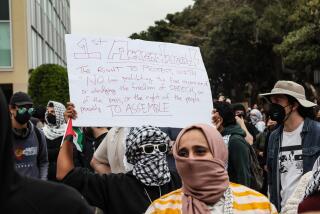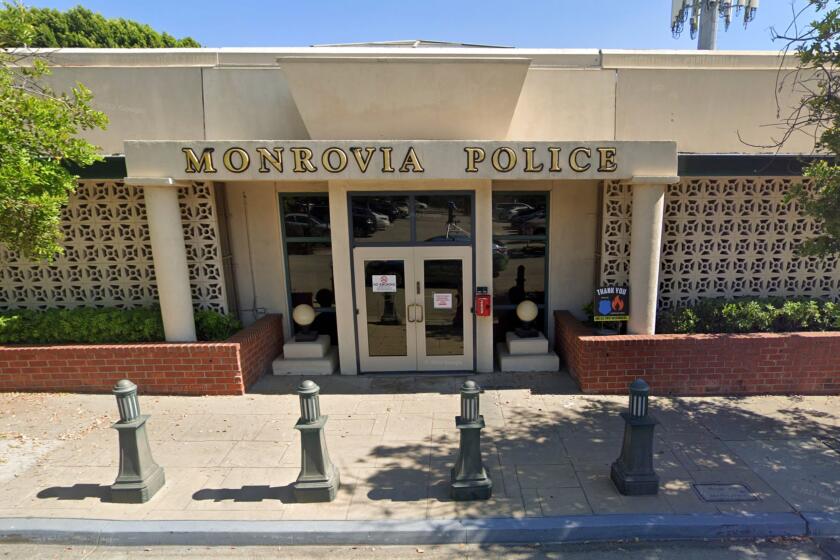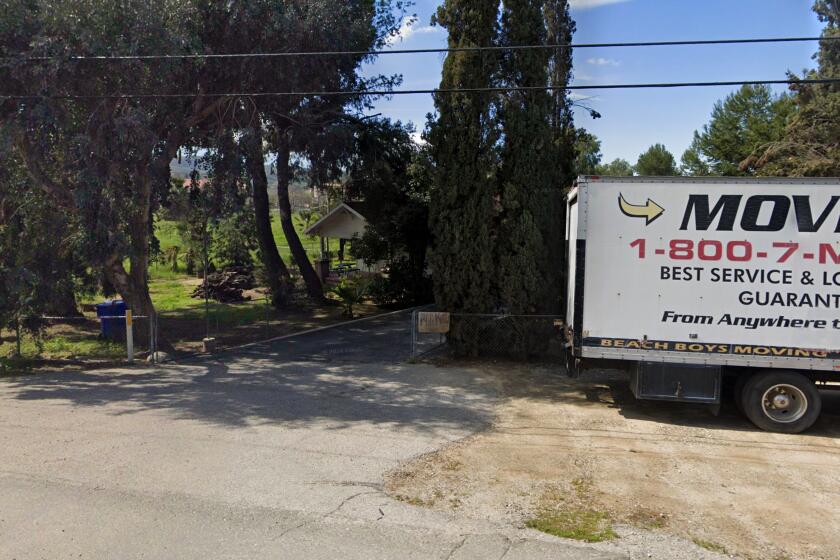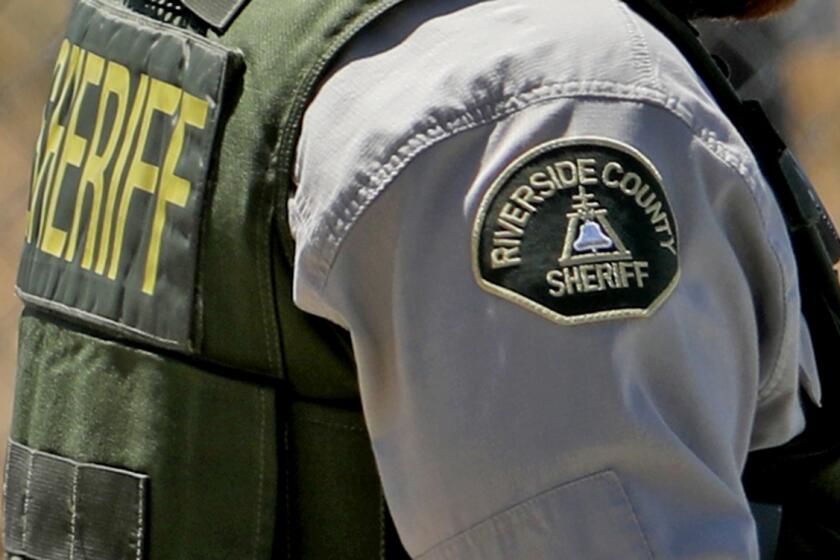Compost Dispute Becomes Trashy Drama
There were angry words, hard stares and impugned motives, and finally spilled tears in the corridor. And, as with any cheap melodrama, there was even a baby doll.
This was no Hollywood set, or even the county courthouse. It all occurred Tuesday on the second floor of Los Angeles City Hall, the latest episode in a 5-year feud over the composting of garbage, played out before a sometimes exasperated, often amused audience of city officials, political aides and reporters.
The dispute was over a question that has been nothing but trouble for the city’s staff of engineers and analysts since 1983: should the city pay an entrepreneur to take 850 tons a day of household garbage, mix it with sewage sludge and treat it through a little-used process called co-composting?
If all goes right, the compost could then be sold rather than buried in landfills, which are filling up with trash at an alarming pace.
Five years ago, the City Council--after heavy lobbying--decided that former lobbyist Joaquin Acosta Jr. and his wife, Frances Reyes-Acosta, should bring co-composting to Los Angeles. But in making the choice, the council ignored the warnings of its professional staff that co-composting could fail--mainly because nobody would buy the compost--and leave the city holding the bag on an unwanted project.
After three hours of bickering Tuesday, the council’s Public Works Committee put the whole idea on hold for 60 days, but at least the display of emotion set a new standard for City Hall theater. “That’s the longest session we’ve ever had on one item in the history of this committee,” said Gilbert Lindsay, the 87-year-old chairman of the council’s Public Works Committee, who got in a few licks himself.
Lindsay accused city staff analysts of prejudice against the Acostas, drawing a heated response from fellow council member Joy Picus and some pointed muttering in the audience from staff aides.
“Somebody does not like the gentleman (Acosta),” said Lindsay, who has favored the project. “I want a fair deal, that’s all. . . . I’m going to insist the city give them a fair deal.”
But Lindsay also drew a few chuckles, as when he turned to Phyllis Currie, the assistant city administrative officer, and said, “I’m addressing this to you, baby doll.”
The hard feelings Tuesday were set off by a new report, released Tuesday by the city administrative office, that revived lingering skepticism among staff analysts about the wisdom of the city’s becoming involved in co-composting.
City sanitation officials have always warned that co-composting plants in Europe--there is only one large plant in the United States--are often unable to sell the finished material. The new report said an inspection team that went to Europe in January found that plants are still unable to sell most of the composted material.
If the material cannot be sold for reuse, city officials contend, it will end up consuming valuable space in landfills just like ordinary trash--even though the city will have already paid the Acostas to process it.
The new report also charged that the two sites under consideration, both on city property on the edge of Los Angeles International Airport, could pose a danger to airliners taking off. The report said a city inspection team that went to Europe observed bird flocks around co-compost plants.
The real fireworks began, however, over the Acostas’ complaint that city bureaucrats have defied the City Council and refused to talk seriously with their firm, California Co-Composting Systems Inc.
“They won’t negotiate with us,” Joaquin Acosta complained. “We want a fair shot,” Frances Reyes-Acosta demanded.
The accusation drew the ire of city officials, who charged that the Acostas have refused for years to give the city any information about financing for the project or details of their plans to sell the composted material.
“You have been doing this for five years, Mr. Acosta, and I’m sick to death of it,” Picus shouted at one point, in defense of the city’s staff.
The Acostas had clearly come to City Hall on Tuesday hoping for some progress, but when the meeting broke up, Mrs. Acosta tearfully confronted top city analysts in the corridor, calling them “liars.”
The Acostas said the $75-million project would be paid for mostly by tax-exempt bonds backed by the state Pollution Control Financing Authority and by about $15 million from investors. The city would then pay the Acostas a fee for every ton of garbage they accept and process.
More to Read
Start your day right
Sign up for Essential California for news, features and recommendations from the L.A. Times and beyond in your inbox six days a week.
You may occasionally receive promotional content from the Los Angeles Times.






